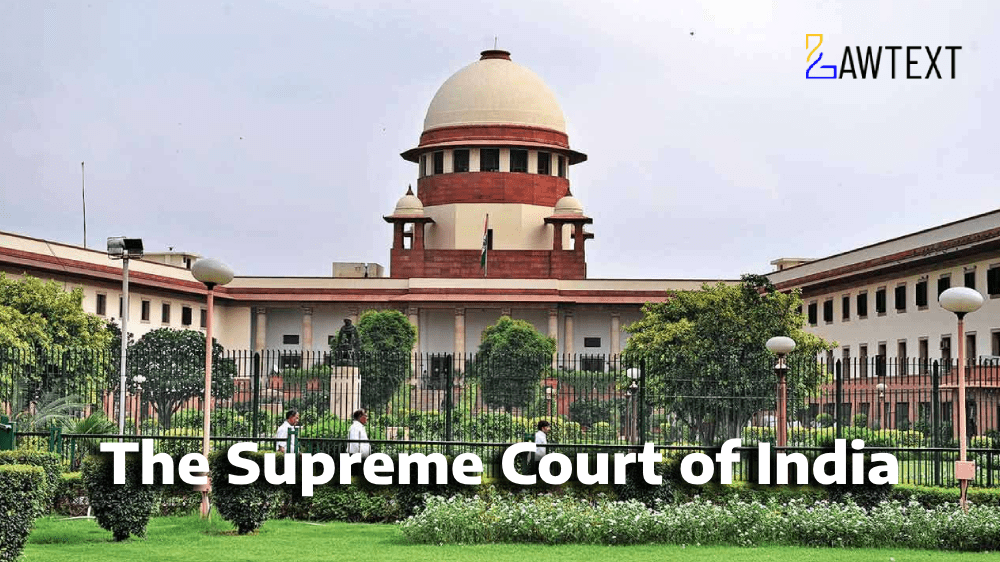CASE NOTE & SUMMARY
The Supreme Court of India dismissed the Madhya Pradesh High Court's order that transferred the custody of a minor child to the father and paternal grandparents through a writ of Habeas Corpus. The Court emphasized that the welfare of the child is paramount and should be decided under the Guardians and Wards Act, 1890, rather than through an extraordinary remedy like Habeas Corpus. Interim custody remains with the maternal relatives until a competent court determines permanent custody, with periodic access provided to the father and paternal grandparents.
-
Background:
- A female child, aged two years and seven months, lost her mother under unnatural circumstances (alleged suicide) on December 27, 2022.
- The father of the child (4th respondent) and paternal grandparents (2nd and 3rd respondents) filed a writ of Habeas Corpus in the Madhya Pradesh High Court, seeking custody of the child.
- The appellants, consisting of the child's maternal aunts and grandparents, had taken custody of the child after her mother's death, alleging it was in the child’s best interests.
- FIRs were registered against the father and paternal grandparents for offences related to dowry harassment and abetment under Sections 304-B and 498-A of the Indian Penal Code, and Sections 3 and 4 of the Dowry Prohibition Act, 1961.
-
High Court Judgment:
- The High Court ruled in favor of the father and paternal grandparents, granting them custody based on the father's legal right as the natural guardian.
- The appellants challenged the High Court's decision in the Supreme Court.
-
Supreme Court's Ruling:
- The Supreme Court set aside the High Court's judgment, stating that the issue of the child’s welfare had not been properly considered.
- The Court emphasized that the child, who had been with her maternal relatives for over a year and a half, should not be treated as a movable property, and her welfare should be the primary concern.
- The Court permitted interim access to the father and grandparents under supervision, while leaving the final decision on custody to a competent court under the Guardians and Wards Act, 1890.
Acts and Sections Discussed:
-
Indian Penal Code (IPC):
- Section 304-B: Dowry Death
- Section 498-A: Cruelty to a Woman by Husband or His Relatives
-
Dowry Prohibition Act, 1961:
- Section 3: Penalty for Giving or Taking Dowry
- Section 4: Penalty for Demanding Dowry
-
Guardians and Wards Act, 1890 (GW Act):
- The GW Act was cited as the proper legal framework for deciding the child’s custody and guardianship, emphasizing that the welfare of the child should be the paramount consideration.
Ratio Decidendi:
The Supreme Court held that while the father may have legal rights as the natural guardian, the welfare of the minor child is the paramount consideration. Custody disputes, especially involving minors, must focus on the child's best interests rather than rigid legal rights. The Court ruled that only through proceedings under the Guardians and Wards Act, 1890, can a substantive and thorough decision on custody be made. Additionally, the Court highlighted that Habeas Corpus is an extraordinary remedy and should not be used to mechanically transfer custody without evaluating the child’s welfare
Citation: 2024 LawText (SC) (9) 61
Case Number: CRIMINAL APPEAL NO. 3821 OF 2023
Date of Decision: 2024-09-06
Case Title: Somprabha Rana & Ors. Versus The State of Madhya Pradesh & Ors.
Before Judge: (Abhay S Oka J. , Augustine George Masih J. )
Appellant: Somprabha Rana & Ors.
Respondent: The State of Madhya Pradesh & Ors.

